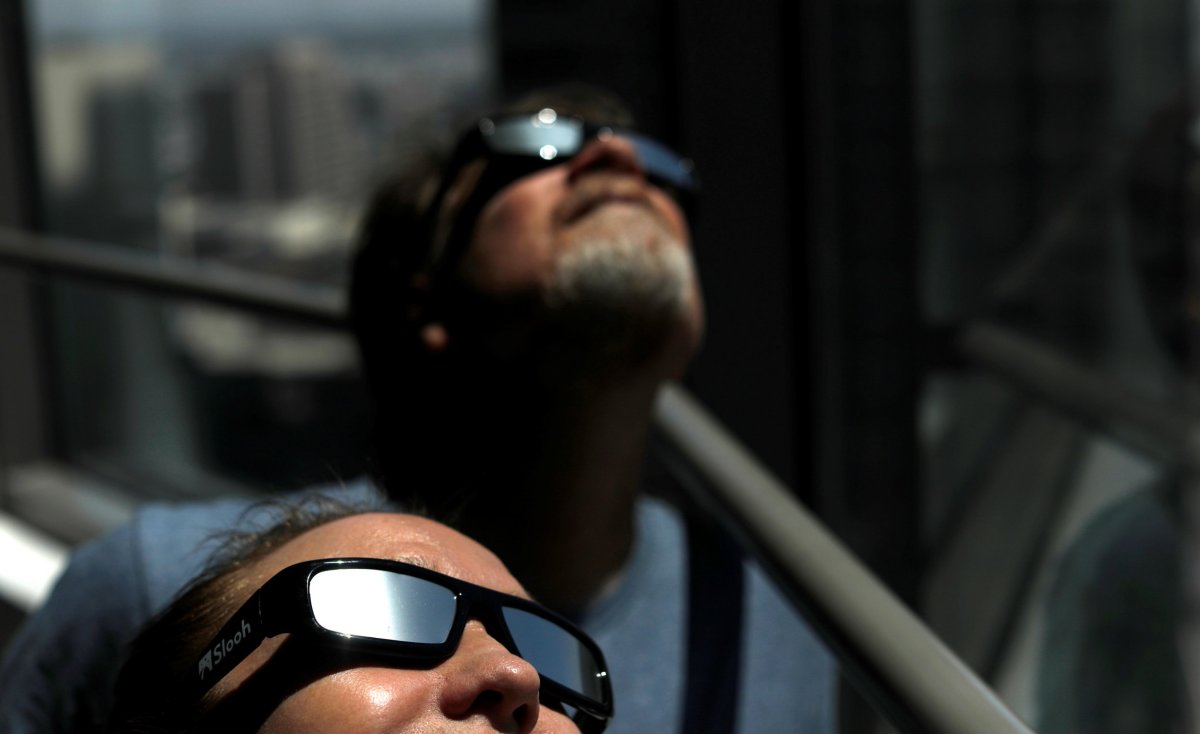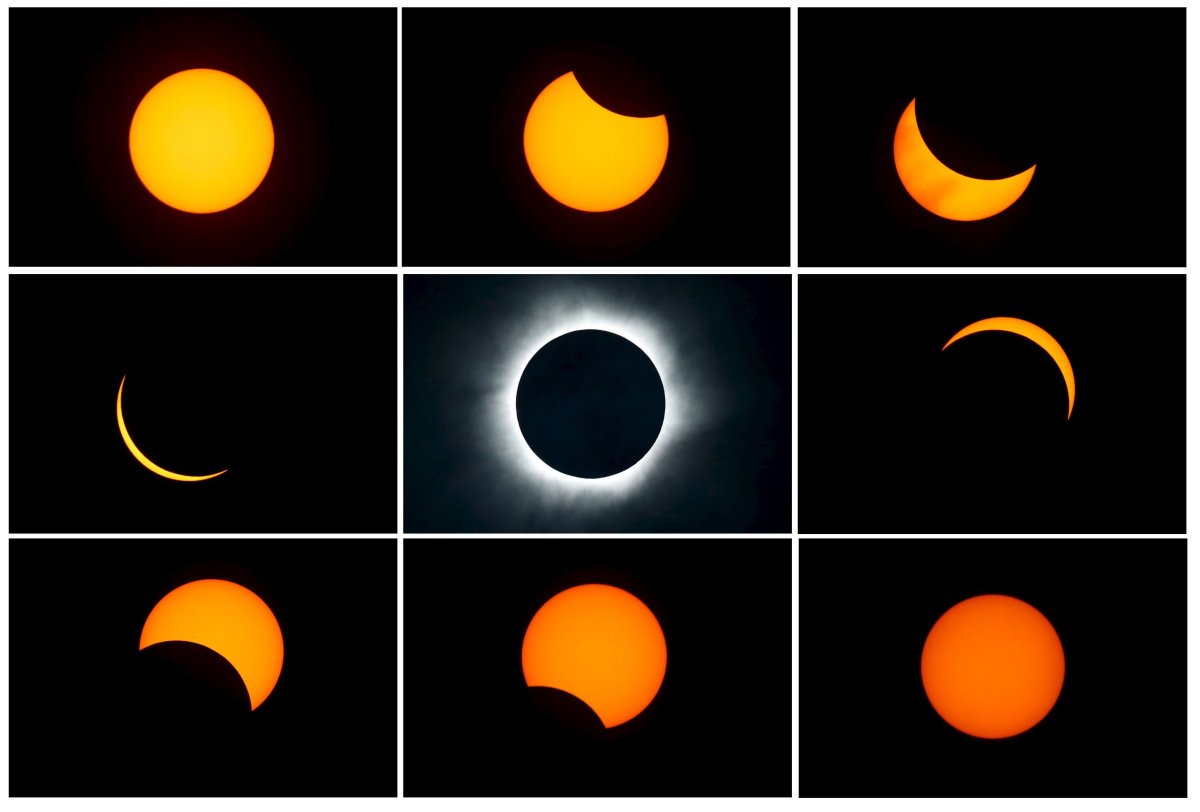Over the course of a few hours on Monday afternoon, the moon will pass in front of the sun, darkening the sky completely for those within the 70-mile-wide band that begins in Oregon and extends southeast across the breadth of the United States to South Carolina. It will be the first total solar eclipse observable from the United States since 1979, and the most significant astronomical phenomenon to take place in the lives of millions of Americans. Much has been written about the eclipse over the past few months, especially in Newsweek. We've compiled the best of our coverage so you can brush up before the big day.
Astronomer Explains Everything You Need to Know About the Eclipse
The basics.
Map of When to Watch in Each State in the Path of Totality
If you're lucky enough to find yourself in the 70-mile-wide totality band that extends from Oregon to South Carolina, here's a detailed map of exactly what time the moon will eclipse the sun. Schedule lunch accordingly.
Watching the eclipse can be risky. Observing the moon move across the sun without the proper glasses can cause permanent eye damage. Make sure to read our roundup of everything you need to know about safely viewing this once-in-a-generation phenomenon.
Here's How to Make the Eclipse Safe on the Eyes
You're going to need more than Ray-Bans to watch the eclipse without risking eye damage. Here's a guide to what kind of eye wear to don.
How to Take Photos of the Sun During Totality
Also tricky is snapping photos of the most photogenic astronomical event of most of our lifetimes. Here's what you need to know.
How to Watch on TV or Live Stream Online If You're Not in Its Path
If you'd rather stay indoors, there are a number of streaming options. NASA, the Weather Channel and other services are offering an array of unique perspectives of the eclipse.
Google Simulator Lets You See What the Eclipse Will Look Like Where You Live
If you aren't able to watch the eclipse in person or stream it, you can get an idea of what it might look like from anywhere in the United States with this interactive Google simulator.

When Was the Last Total Solar Eclipse and When Will the Next One Come
The last total solar eclipse observable from the United States crossed over a handful of northwestern states in 1979. So it's been a while. Americans won't have to wait as long for the next one, though, which will ribbon from the northeast down through Texas in 2024.
Last Ever Total Solar Eclipse Will Take Place in 600 Million Years
Probably don't have to worry about securing a pair of glasses for this one.
Why total solar eclipses frightened ancient cultures
Imagine the sun disappearing in the middle of the day without any scientific explanation.
Authorities Are Treating the Solar Eclipse Like It's the End of the World
Just because we have modern technology and science at our disposal doesn't mean we won't be panicking come eclipse time. The cities located within the band of totality are experiencing influxes of tourists, and some are unsure whether those cities' infrastructures can accommodate the throngs of amateur astronomers.

Here's What the Sun's Corona Will Look Like to Scientists
Scientists are just as excited about the eclipse as everyone else.
Airline Flight Will Chase Solar Eclipse as It's Happening
Some of them will be among the first to see it on an Alaskan Airlines flight heading down the West Coast Monday morning.
Why NASA Is Chasing the Total Solar Eclipse With Jet Planes
Some of those chasing the eclipse by air won't be flying commercial.
Bill Nye on How, When and Where to Watch the the Total Solar Eclipse
"We're celebrating the celestial event because if you think about the profound nature of the discovery that the Earth goes around the sun, that all the planets go around the sun, it changed human history, it enabled international commerce, it enables you to have deliveries by Amazon and shop for clothing at the Gap and have mobile phones designed in California manufactured overseas," Nye told Newsweek. "It gives you tremendous insight into your place in the cosmos. So everybody who has an opportunity to see or experience an eclipse, I believe, should take it. Because this is profound."
The Total Solar Eclipse Could Mean Disaster for Trump, According to Astrologers
There's a Trump angle for everything.
Uncommon Knowledge
Newsweek is committed to challenging conventional wisdom and finding connections in the search for common ground.
Newsweek is committed to challenging conventional wisdom and finding connections in the search for common ground.
About the writer
Ryan Bort is a staff writer covering culture for Newsweek. Previously, he was a freelance writer and editor, and his ... Read more
To read how Newsweek uses AI as a newsroom tool, Click here.








